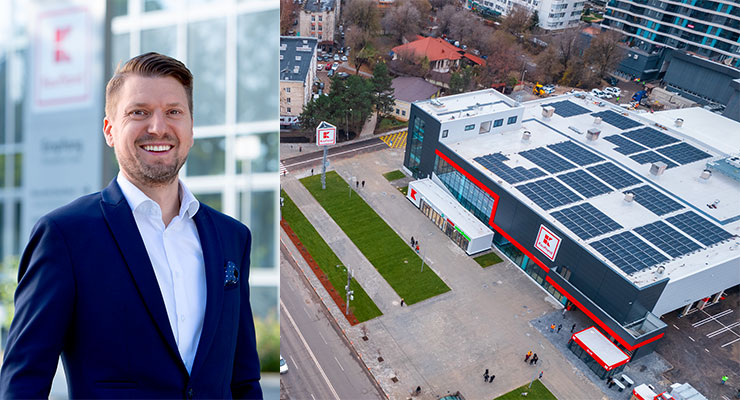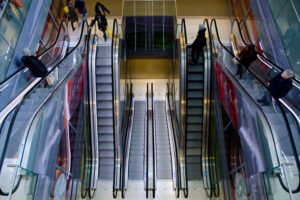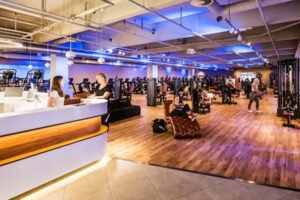Berlin, the capital of Germany: In front of the main entrance to the Kaufland store located at Grünhofer Weg 9, a small group has gathered, equipped with a smartphone, a power bank, a folding ruler, a laser measuring device, and a measuring cup. It’s a mild, dry day in May 2024 – ideal conditions for the scheduled site inspection. The objective: to assess the retail property with the EDGE (Excellence in Design for Greater Efficiencies) certification issued by the IFC. To achieve this, the entire building will be inspected to verify that the data previously entered on the EDGE app corresponds to the conditions found on-site.
The group sets off and circles the entire building once – taking photos of the facade, landscaping, and exterior lighting. The folding ruler and laser device are used for the first time to measure windows. The triple glazing is documented for the app’s energy calculation. Then, it’s time to head inside: Measurements are taken in the bakery section, within the refrigerated and freezer units, while LED lighting and CO₂ sensors are photographed; then, the group goes up to the roof. Up on the roof, the wind picks up. The door to the rotary heat exchanger proves difficult to open, not because of the wind, but due to negative pressure. The team takes photos and looks for ID plates. Every item of technical equipment on the roof is documented – from the high ventilation tower and split air conditioning units to the photovoltaic system. Nothing can be overlooked – neither the equipment nor its corresponding ID plates. These details will be later cross-checked with product datasheets to determine the store’s specific energy consumption. Next, they head to the technical rooms – where it gets loud. The compressors of the refrigeration system hum continuously. What’s special about this store? The waste heat from the refrigeration units is harnessed to heat the building, helping to reduce energy consumption. Combined with the photovoltaic system and the use of renewable electricity, the store is, on paper, CO₂- neutral in terms of electricity use. This level of efficiency is standard at newer stores like this one, which opened in 2018, but it has yet to be implemented across Kaufland’s entire portfolio. In the sanitary facilities, the measuring cup is put to use: Numerous water measurements follow – in the customer WCs, employee changing rooms, and staff kitchen. A few hours later, the inspection is complete – the digital report is signed, and all photos, measurements, and comments are uploaded to the app. Now, the information is integrated into the EDGE platform, the auditor’s feedback is reviewed, and everything is submitted to the certification body. Mission accomplished: In February 2025, the sub-project is successfully completed, and the EDGE certificate – awarded with the “Advanced” rating in this case – is available for download.
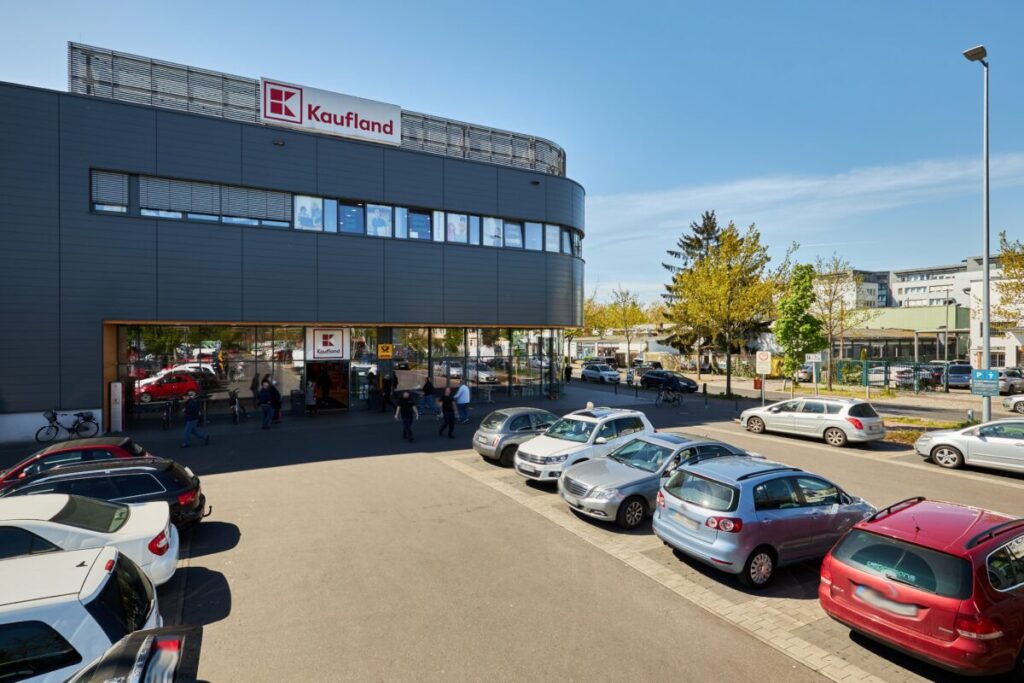
This approach has been implemented across all the countries we operate in. Our goal is to obtain EDGE certification for all properties under our ownership. All retail locations in the Czech Republic, Slovakia, Poland, Croatia, Romania, Bulgaria, and Moldova have already been successfully certified. Germany will follow soon.
So, the question is – why? Why go to all this effort? Why pursue EDGE certification?
Let’s start at the beginning: Why is Kaufland undertaking this effort
The answer is multi-faceted. EDGE certification is a component of Kaufland’s broader sustainability strategy, which includes reducing CO₂ emissions in Scope 1 and 2 by 80% by 2030 (using 2019 as the baseline year). Moreover, the Schwarz Group, Kaufland’s parent company, aims to become CO₂-neutral by 2050. In 2024, the Group committed to the Net Zero target. Reaching this goal requires a holistic approach – echoing Aristotle’s well-known insight: “The whole is greater than the sum of its parts.” Sustainability goes beyond just using renewable energy. It requires a comprehensive approach that considers environmental, social, and economic factors. It means focusing on areas like healthy nutrition, resource conservation, climate protection, and social responsibility.
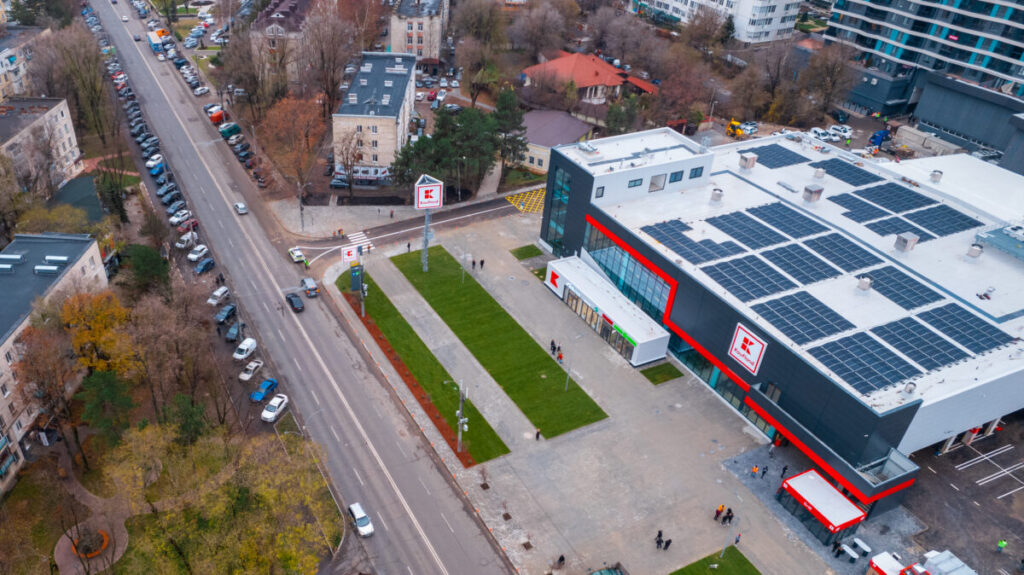
Kaufland’s real estate division carries a significant degree of responsibility. The company operates over 1,550 stores in eight countries – with a strong presence in Central and Eastern Europe in addition to Germany. The existing real estate portfolio is heterogeneous, shaped by unique site requirements, numerous acquisitions, varying building ages, and changing construction standards over the years. It’s also important to distinguish between owned and leased properties, as well as between existing stores and new developments. For existing stores, the focus is on revitalization and reducing energy consumption and CO₂ emissions. New developments prioritize recyclability and cradle-to-cradle design principles. Thanks to advanced, energyefficient technologies, the CO₂ emissions of new stores have already been significantly reduced.
Developing a real estate-specific sustainability strategy requires a comprehensive view that takes all these factors into account. This demands in-depth knowledge of the real estate portfolio – a 360° understanding of each location. Does the ventilation system have heat recovery? Are digital electricity and water meters installed and networked? Are the windows double- or triple-glazed? What is the U-value of the exterior walls? Is the waste heat from the cooling system utilized? How thick is the roof insulation? Does the store consume more electricity or water than comparable stores?
To build a 360° understanding, it is essential to document construction standards by age group, integrate building management systems, implement the Internet of Things (IoT), and put highly qualified teams in place – such as energy and facility managers who can structure, analyze, and develop optimization strategies based on the collected data.
That leads us to the second “why”: Why pursue edge certification?
EDGE certification offers a major advantage over other real estate certifications: It enables the cost-effective certification of an entire (existing) portfolio. The system’s strength lies in its comprehensive coverage of energy, water, and materials as well as its structured approach. The ability to create clusters and use sampling further enhances its efficiency in implementation. To certify sites, similar locations are grouped into clusters according to defined criteria, and a required number of sample stores are selected by independent entities. These samples are extensively documented and analyzed. The resulting data is then applied to the nonsample stores, adjusted for individual values.
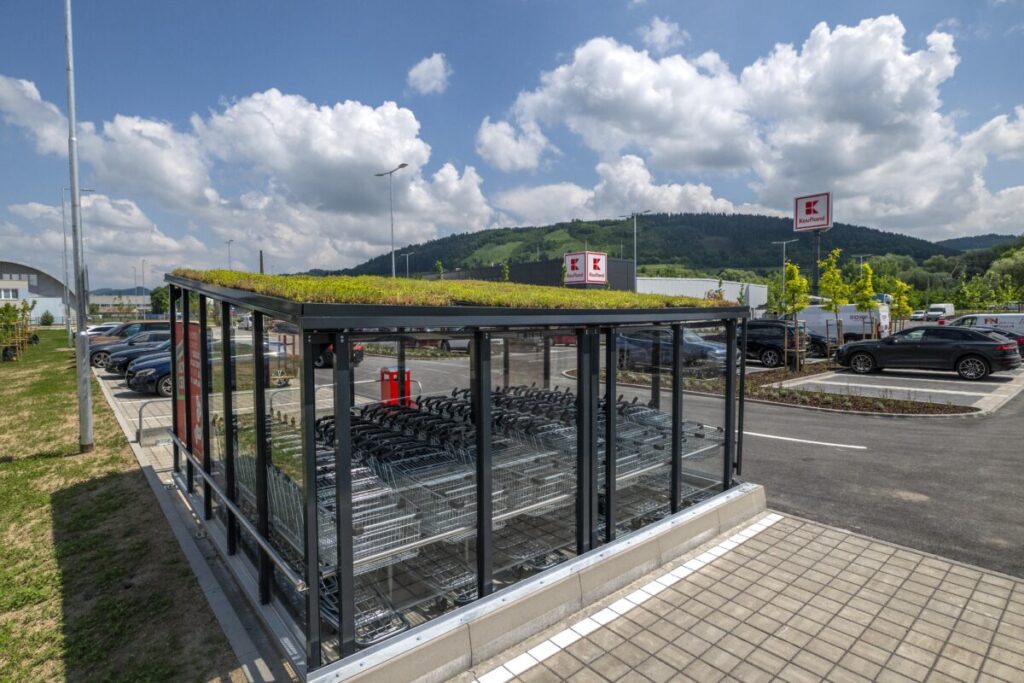
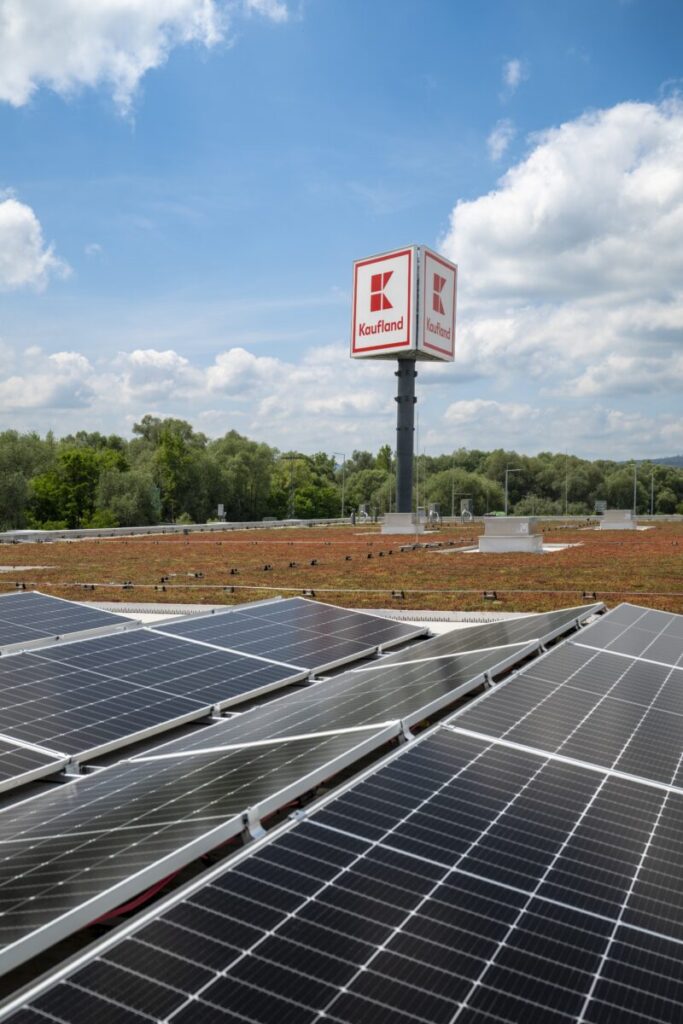
This process allows Kaufland to verify, validate, and, if necessary, correct its knowledge of the real estate portfolio. It also helps identify weaknesses and update standards when needed. Other certification systems can analyze an individual building’s standard more comprehensively but are limited to that single building and involve higher certification costs. Nevertheless, Kaufland uses other certification systems as well, particularly for new developments – such as BREEAM for our timber store in Bratislava and our headquarters in Wroclaw, and DGNB for a store under construction in Germany.
The result of EDGE certification speaks for itself: In just two years, all stores under ownership were certified, 35% of which received the higher “Advanced” rating. This outcome validates our approach and underscores our commitment to construction quality, high building standards, the longevity of our properties, and consistent maintenance and upgrades. It also plays a crucial role in future-proofing our real estate portfolio. True to our motto: Action makes the difference!
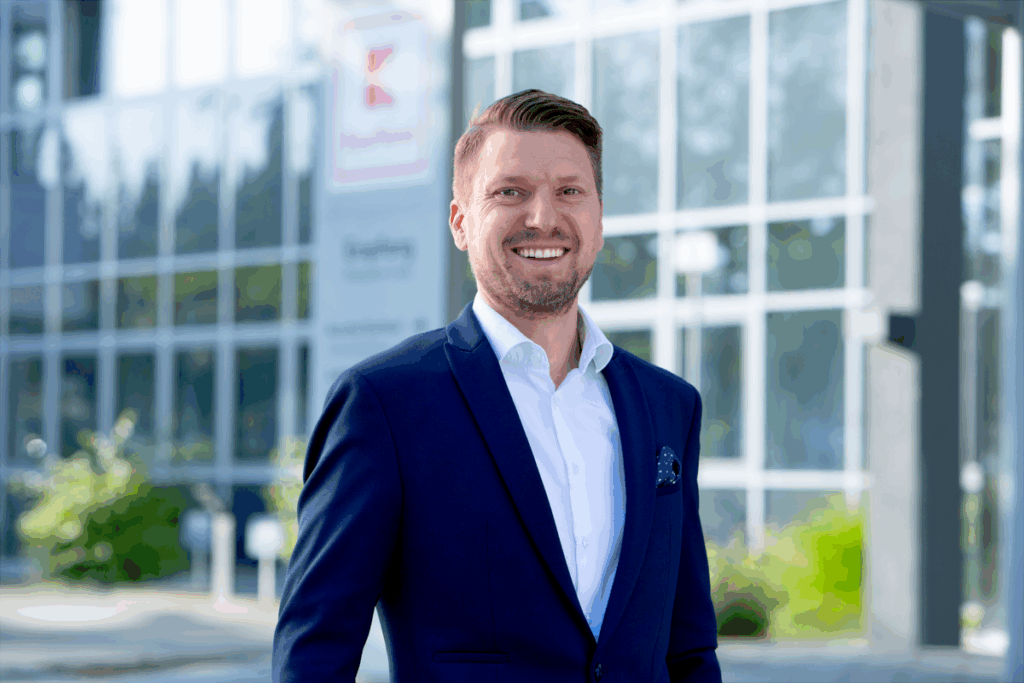
Dominik Uhe
Dominik Uhe is Head of Investor Relationship Management at Kaufland International

